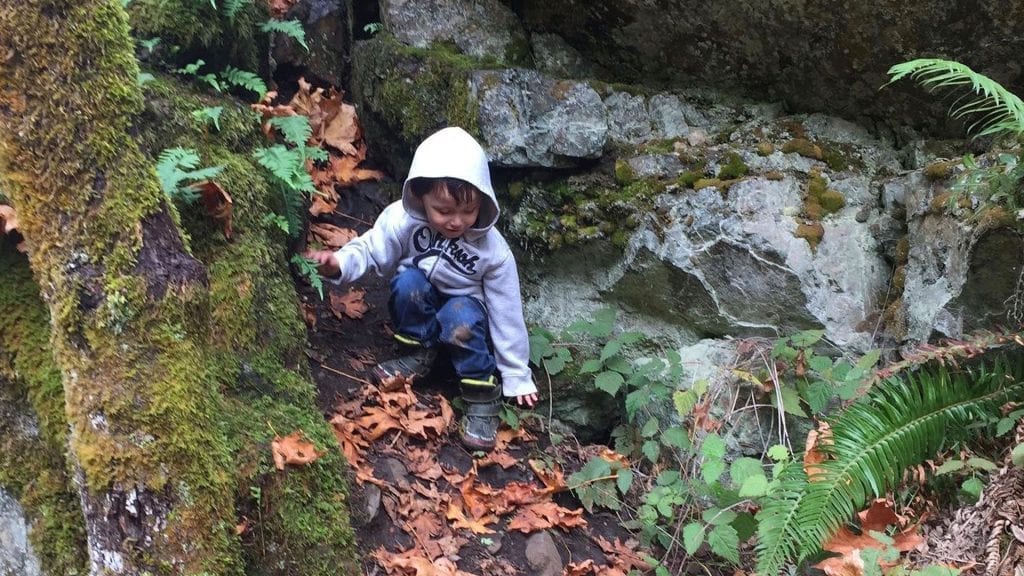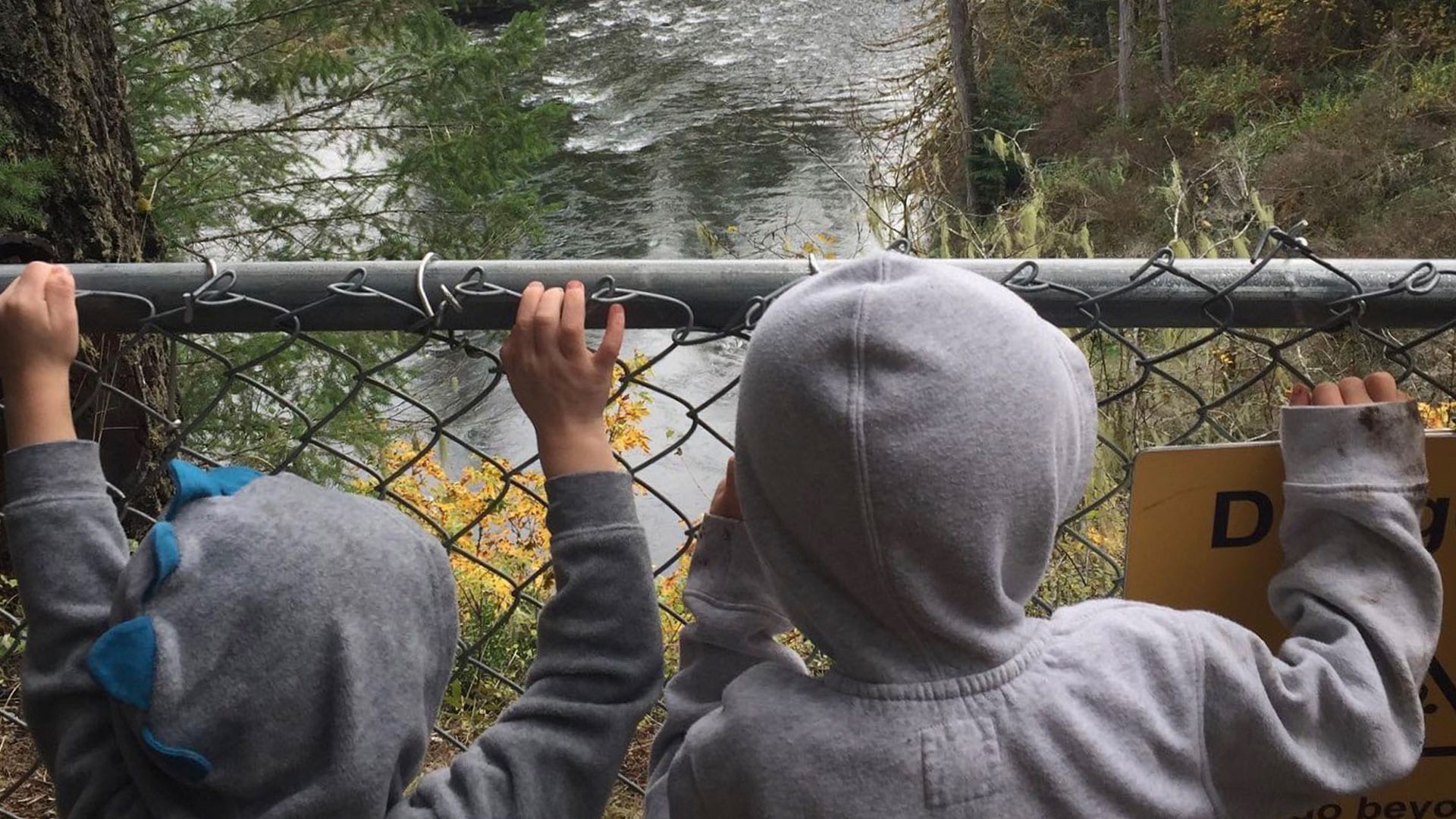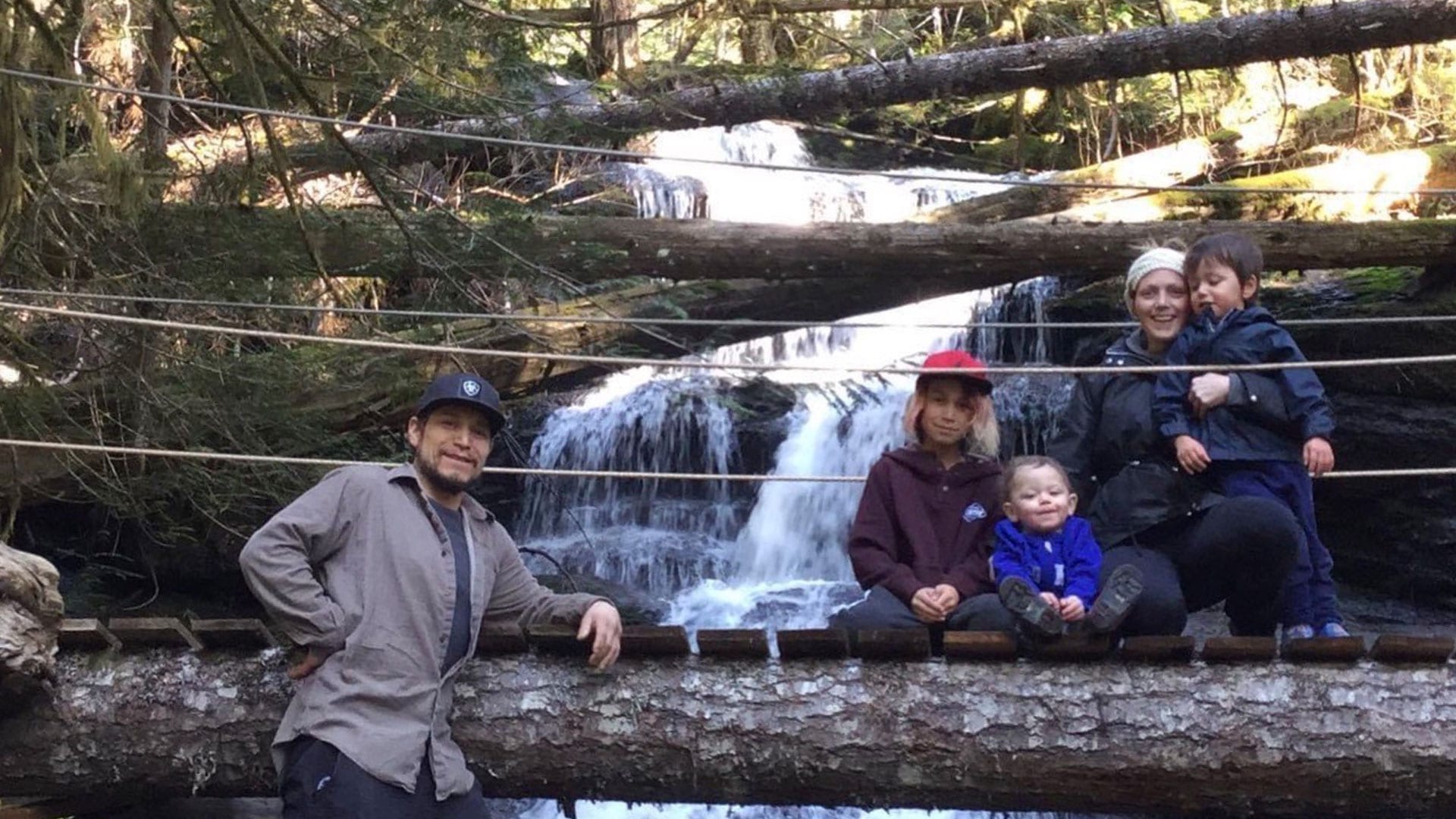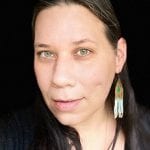
Struggles for services, but Covid-19 has also given the George family time together. Photo courtesy: Kaelyn Vimhel
Kaelyn Vimhel, a mother of three Hupacasath children, says COVID-19-related closures have affected the therapy support meant for her four year-old son, Landen George.
While the COVID-19 pandemic has affected all families, children with special needs and support services have been especially struggling with the shift online.
“I have a really special family, I have a child that I’m awaiting some diagnoses for special needs,” Vimhel says. “My child goes to behavioral therapy, occupational therapy, speech therapy. We haven’t been able to have in-person sessions since March.”
Vimhel’s son accesses support in Port Alberni, from the Kiwanis Hilton Children’s Centre which provides services for children under the age of six.
“The Hilton center is for all nations, and offers free services,” says Vimhel. “We call it school, but behavioral classes only have four students. It’s been working, and a lot of the children that are in that class all have the same needs and focus.”
Vimhel says she benefits as a parent, learning different coping mechanisms with other families.
When the pandemic began, the centre closed three of the four branches of its services. The childcare branch was designated as an essential service and remained open. The other programs, such as speech therapy, shifted to virtual supports.
“A lot of it’s been over zoom, which unfortunately, when you have a child with a possible diagnosis of ADD, it’s impossible to have them sit down and focus on a computer,” says Vimhel. “So it’s definitely been a struggle, losing a lot of our support.”

Service providers have had to adapt and assess what they can safely offer, and in-person sessions have been available only if “deemed critical,” according to WorkSafe BC Re-Entry protocol.
Kiwanis Hilton Centre’s protocol does outline guidelines for in-person sessions, if careful measures are taken. While the family has not been involved in the process of determining whether or not their son qualifies as “critical,” they have observed a negative impact on their son’s coping skills in the meantime, Vimhel says.
“It’s really sad, because I can see a regression,” says Vimhel. “Things that we were learning over time, a lot of the things have been lost, because we’re not practicing it weekly with his workers.”
Her son is currently awaiting a diagnosis for sensory processing disorder. He experiences sensitivity to foods because of their texture, or everyday activity like brushing his teeth, because of the bristles on the brush, Vimhel explains. They are hopeful to have more answers to know how to best support him moving forward.
Culturally-relevant care
A recent report released Dec. 3 Left Out: Children and youth with special needs during the pandemic, written by the Representative for Children and Youth in B.C., highlights barriers to families accessing care.
“The COVID-19 pandemic has revealed the fragility of our support systems for children and youth, exacerbating long-standing problems and layering on new ones,” Dr. Charlesworth writes.
“The lack of equity in how families are served in B.C. is a source of tremendous frustration for families and our Community Partners.
“Many families of children and youth with special needs aren’t able to access any supports, because their children’s needs or diagnoses do not meet CYSN eligibility criteria.”
Authors of the report identified eight points for immediate government action, including the creation of a roundtable, comprised of designated representatives of children and youth with special needs, advocacy groups, community service providers and funding ministries for regular and routine check-ins, brainstorming on emerging needs, barriers to services and access to supports.
“The work of B.C.’s Social Services Roundtable provides a model,” the report notes. “This body must include Indigenous organizations and communities to prioritize the wellness of First Nations, Métis, Inuit and Urban Indigenous children in B.C.”
The George family’s experience is an example of the larger questions in our province waiting to be addressed.
The need for cultural sensitivity is something the George family values at the Hilton Centre.
The centre seeks to include culturally-appropriate and safe environments for their families.
Susan Fox, executive director for Outreach Therapy confirms these efforts as a mandate, and says “where we are still learning, we approach with respect, and humility and look to seek guidance.”
RIGHT TO ACCESS OR INDIVIDUAL LEARNING NEEDS
Provincial health authorities opened schools in September, and childcare centres, early childhood programs followed suit.
The family wishes the centre had reopened for four year-old Landen to continue learning with his teacher and workers in a way that suits his own learning needs.
“There is not much coping. We’re almost going into nine months in this,” says Vimhel. “So I try to practice a lot of the things at home with him, but I feel like he really had a connection with his teacher and they were able to work on things together.”
For now, the children go to visit their grandmother for childcare, who lives on Hupacasath reserve. If a complete lock down ever affected their grandmother, this would have a big impact on the family’s livelihood, as both parents work, she explains.

One of the bright spots in this difficult time is having more time together, especially early in the pandemic.
“I know that sounds sad, but we live in a world where life’s just so busy and sometimes we lose sight of what’s actually important,” says Vimhel. “We spent a lot of one-on-one time with our children, we’d take one child out at a time, so it was cool to just embrace my family for once.”
So it was nice to be home with my kids. I was very, very grateful for that part.”










